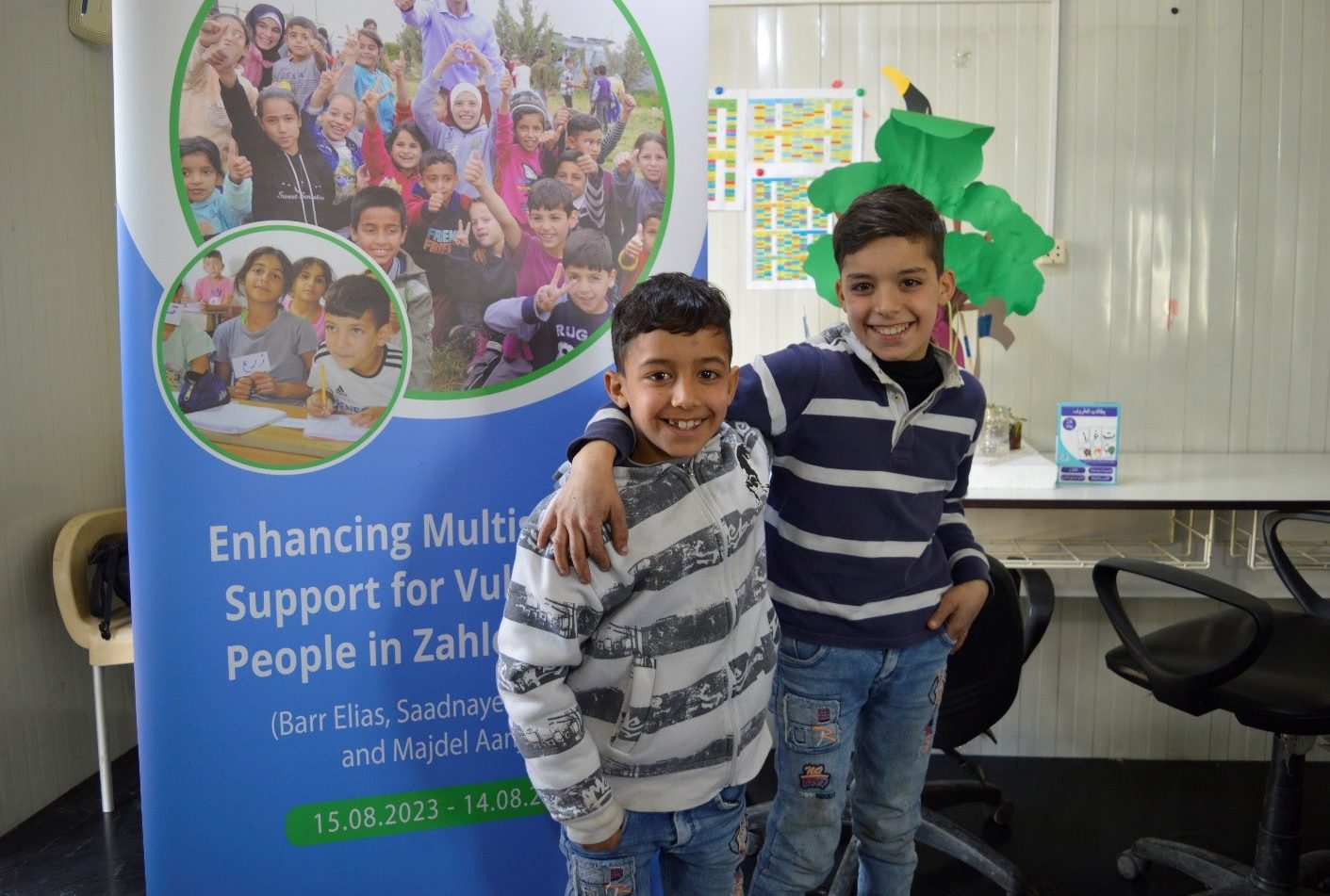Mohamed is a Syrian child born in 2011: he is 13 years old, as old as the war in Syria. "Thirteen years of crisis in Syria have taken an unimaginable toll on the country's people." These are the words of the United Nations Resident Coordinator and Humanitarian Coordinator for Syria, Adam Abdelmoula, and the Regional Humanitarian Coordinator for the Syrian crisis, Muhannad Hadi on the occasion of the thirteenth anniversary of the war in Syria (15 March 2024).
A dramatic situation for the Syrians remaining in the country but also for many of the Syrians who fled. Syria is currently the country of origin of the largest number of refugees in the world and in Europe. In 2023, there were over 5 million Syrians living in over 130 countries. The majority of Syrian refugees live in situations of total poverty. Almost half are young people and children.
Many of Syrian refugees live in Lebanon, a Country grappling with a deep crisis that is even worsened, after the beginning of the new war in Middle East the last October, 7. The south of the country has been in an emergency situation, with thousands of people having left their homes to move further north, schools closed, and tensions that do not seem to be subsiding at the Israeli border.
While attention is focused in the south, particularly in the Marjayoun plain where AVSI has its offices and where the families involved in the Distance Support programme live, in the rest of the country the problems remain the same. According to a document published by the United Nations, of the 1.2 million Lebanese boys and girls of school age, 10% have no access to education (Lebanon Crisis Response Plan - LCRP, 2022).
This number increases dramatically if one looks at Syrian children living in the country: 53% of them do not go to school (Vulnerability Assessment of Syrian Refugees in Lebanon - VASyR, 2022).
The causes of this school absenteeism are many, from the inability to afford the cost of transport tickets to reach educational centres, to the payment of school supplies, to the lack of documents to access public schools, in the case of Syrian families, or the need for children to have to work to help their struggling parents financially.
Underlying all these problems, however, is the economic vulnerability of families, in a country still reeling from the crisis.
In the Bekaa region, east of Beirut, AVSI carries out the project "Enhancing Multisectoral Support for Vulnerable Lebanese and Displaced Syrians in Zahle District (Bar Elias, Saadnavel, Taalbava, and Maidel Asniar)", funded by the Lebanon Humanitarian Fund (LHF), OCHA Lebanon in direct collaboration with AVSI and the support of local centres in Sawa and Nabad. In its education component, the project aims to help 800 Lebanese and Syrian students, aged between 7 and 13, enrolled in public schools, who are at risk of dropping out of school or flunking out. In alternating shifts between morning and afternoon, the children receive additional support to do their homework and fill in their gaps in Arabic, English, mathematics and science.
The reasons why the beneficiaries of the project have difficulties at school may be different. For the two Syrian brothers Mohammed and Ahmed, aged 9 and 13 respectively, study time is limited because it is divided with time to work in a workshop processing iron.
"At first it was me who did not want Mohammad and Ahmed to go to school," says the mother of the two children. "There are eight of us in the family and my husband's salary alone would not be enough to support us all. I have to take care of my other children, the youngest in particular needs all my attention. A few months ago he had very expensive ear surgery, we had to go into debt to be able to afford it. So Mohammad, Ahmed and their 17-year-old brother had to start working. We needed the money to pay the creditors. However, I realised that they were not happy, every time they met other children on their way to school they looked at them with sadness. It hurt me to see my children like that. That is why my husband and I decided to alternate work and study, enrolling them in public school. Now they seem happier, it was the right decision. I am grateful to the staff of the centre for helping them with their studies".

I really like going to school because I can learn different things. My favourite subject is Arabic, but I struggle more with English and here at the centre they help me catch up. In my spare time I try to study or play marbles with my friends. One day I hope to have my own workshop to work with iron.
Mohammad, project beneficiary
Like his older brother, Ahmed also dreams of becoming a blacksmith when he grows up: "But first I have to study. When I come here to the centre they help me do that. I am happy at the moment. Nothing makes me sad."
It is evident how much help the school is giving Ahmed and Mohammed. They are learning to read and write, they are also more disciplined at home and have a more stable routine. I don't have a lot of hope for the future of this country, especially for people like us who come from Syria, but I hope that education can guide my children to a better future, that they can graduate and one day find their own way to be safe and happy.
Ahmed and Mohammed's father




